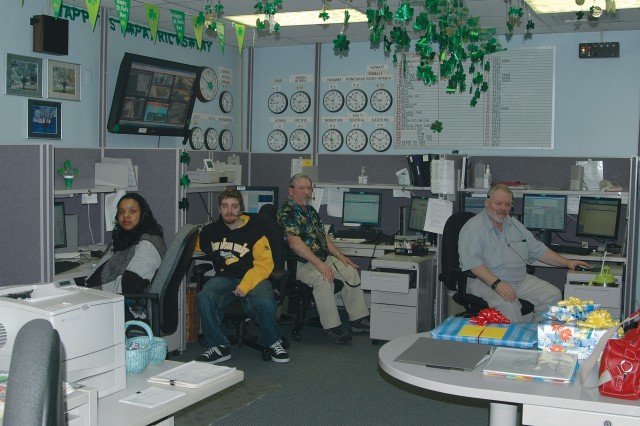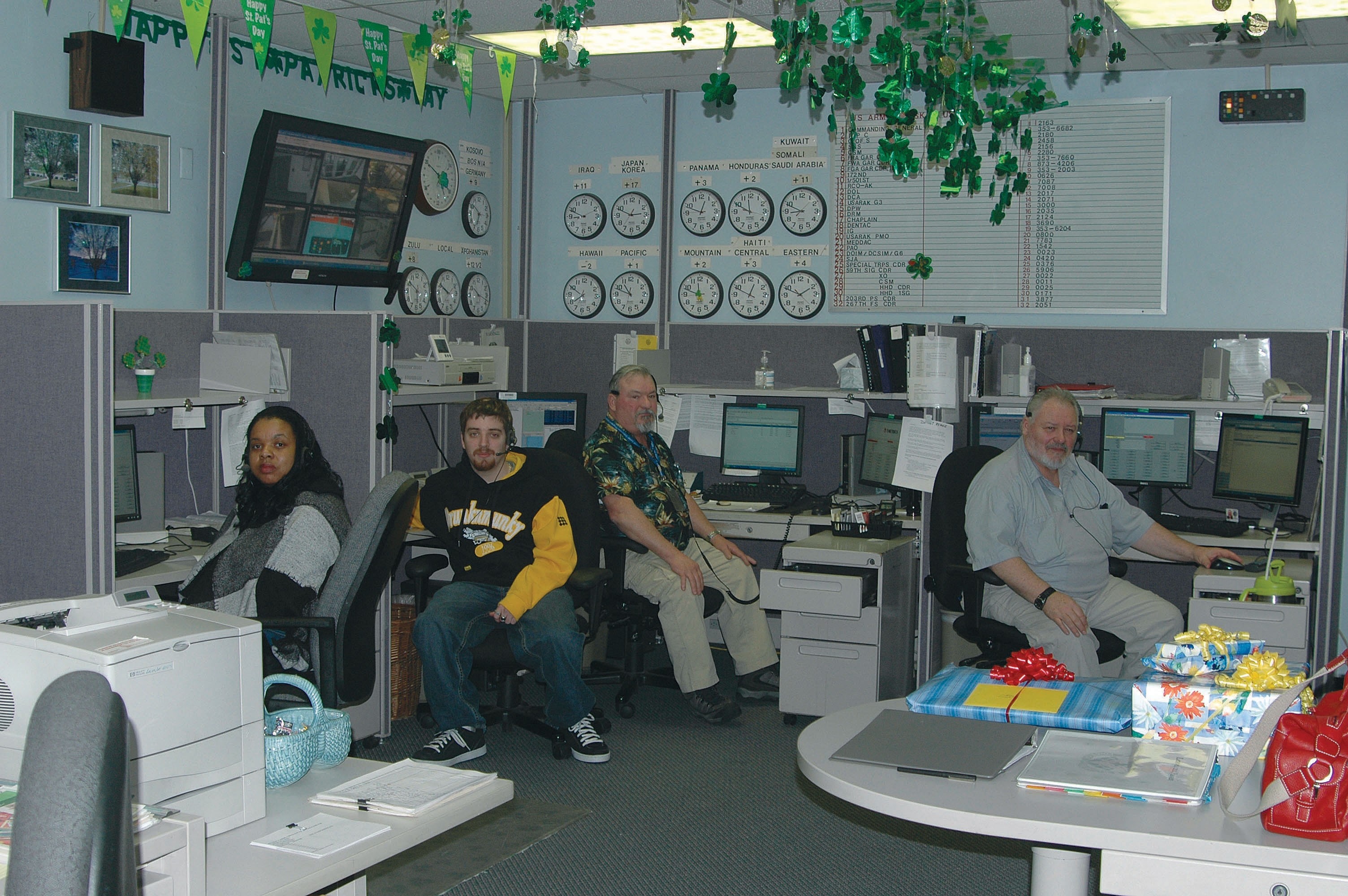
There's a lot of power behind the number zero.
Just ask the nine operators with the 59th Signal Battalion and Directorate of Information Management.
The group is a 24-hour service responsible for all information calls to Army installations in the state - no easy task, considering the operational tempo of troops within U.S. Army Alaska and the Alaska National Guard.
Despite the increase in automated technology, there is always a live person answering the phone here. They've connected families, looked up phone numbers and even saved a few lives.
"A parent called us (one night) and they had just talked to their son, and he was threatening to commit suicide," said Maureen Hamel, chief operator. "He was in the barracks. They called here; they didn't know what to do. They were trying to get help."
Another man was stranded on Arctic Valley in the middle of winter. He wasn't dressed appropriately and needed emergency help.
"He got to one of the emergency phones and called," she said. "I think I probably spent about 45 minutes with him. He just kept saying, 'I just need to lie down. I just need to go to sleep.' I'm telling him, 'Jump up and down!' The communications clerk (in my office) came in and I made motions at her. She grabbed another telephone and called the (military police).
When the former 172nd Stryker Brigade Combat Team was extended in Iraq, the operators really got a run for their money.
"They were on an emotional pendulum which swung between sharing Soldiers' hopes and despair," Hamel said. "Operators cried with them, encouraged them and shared their pain and joys."
When the extension was announced, immediate family members were notified by their Soldier or the family readiness group. Extended family, however, received word through news reports. Hamel said it seemed their first thought was to call the military operator to get more information.
Only one operator was working that night, and she was inundated with phone calls. Hundreds of people from across the country wanted to know who to turn to for help with issues the extension created.
"There was a father who was upset because prior arrangements had been made by family members to fly to Alaska for his son's wedding," she said. "Along with being fearful for his son's well-being, it was the plane tickets that had been purchased, the honeymoon cruise, church, flowers, photographer and reception arrangements that would have to be cancelled. These were issues that (quickly) became the mission of the Family Assistance Center to address, but (initially) it was the operators who took the brunt of the families' anger."
Along with those calls, operators began placing 15-minute morale calls for troops. Hamel said they felt privileged to connect loved ones.
"Operators feel that placing morale calls was one of the most important aspects of their duties.
They will never regret the added traffic, nor will they forget it. They were emotionally impacted and they felt it was an honor to support the troops," she said.
It was a learning process for everyone in the office. Some family members didn't realize there was a delay between Iraq and the United States and would hang up after hearing no response.
After that, the operators stayed on the line to ensure the call was connected properly. They also waived the 15-minute time limit when Soldiers were ironing out issues - like finances and housing - pertaining to the extension.
"We knew there was no way they could get everything taken care of in 15 minutes," she said, "so we let them (take) longer."
In recognition of their hard work during the extension - which included connecting a total of 37,569 morale calls during a time when the office was short-staffed - the operators were presented with a plaque and flag flown on patrol in Iraq.
"I like people, and I enjoy helping them," said post operator Jim Hudson. "This is a position where I can actually do that on a regular basis."
Now, the operators are turning their attention to the 4th Brigade Combat Team (Airborne), 25th Infantry Division.
They connect morale calls and put spouses in contact with injured Soldiers in Germany, all the while grateful to be serving those who serve the country.
"They were emotionally impacted and (feel it's) an honor to support the troops," Hamel said. "Operators who are (prior service) feel a part of them with the men and women who were deployed in support of the Global War on Terror."

Social Sharing